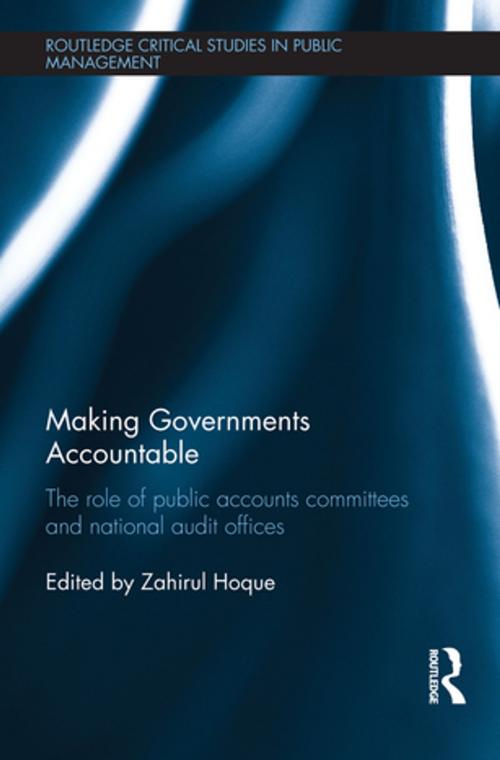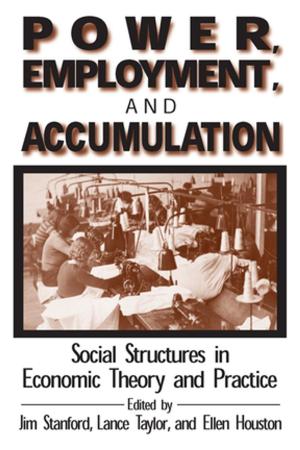Making Governments Accountable
The Role of Public Accounts Committees and National Audit Offices
Business & Finance, Accounting, Governmental, Nonfiction, Social & Cultural Studies, Political Science, Government, Public Affairs & Administration, International, Foreign Legal Systems| Author: | ISBN: | 9781317666967 | |
| Publisher: | Taylor and Francis | Publication: | May 15, 2015 |
| Imprint: | Routledge | Language: | English |
| Author: | |
| ISBN: | 9781317666967 |
| Publisher: | Taylor and Francis |
| Publication: | May 15, 2015 |
| Imprint: | Routledge |
| Language: | English |
Over the past two decades, there has been a paradigm shift in public administration and public sector accounting around the world, with increasing emphasis on good governance and accountability processes for government entities. This is all driven both by economic rationalism, and by changing expectations of what governments can and should do. An important aspect of this accountability and governance process is the establishment and effective functioning of a Public Accounts Committee (PAC), a key component of democratic accountability.
With contributions from renowned scholars and practitioners, and using case studies from around the world, this research-based collection examines the rationales for current roles of the PACs and explores the links between PACs and National Audit Offices. It also compares PAC practices from developing and developed countries such as Africa, Asia, Pacific islands, and Europe with both Westminster and non-Westminster models of government.
This will be valuable reading for academics, researchers, and advanced students in public management, public accounting and public sector governance.
Over the past two decades, there has been a paradigm shift in public administration and public sector accounting around the world, with increasing emphasis on good governance and accountability processes for government entities. This is all driven both by economic rationalism, and by changing expectations of what governments can and should do. An important aspect of this accountability and governance process is the establishment and effective functioning of a Public Accounts Committee (PAC), a key component of democratic accountability.
With contributions from renowned scholars and practitioners, and using case studies from around the world, this research-based collection examines the rationales for current roles of the PACs and explores the links between PACs and National Audit Offices. It also compares PAC practices from developing and developed countries such as Africa, Asia, Pacific islands, and Europe with both Westminster and non-Westminster models of government.
This will be valuable reading for academics, researchers, and advanced students in public management, public accounting and public sector governance.















